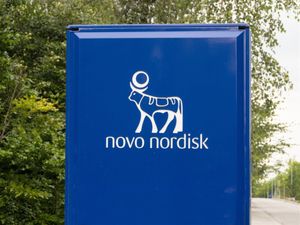
In a significant move poised to accelerate India's technological advancement, JSS Academy of Higher Education and Research (JSS AHER), Mysuru, and Vellore Institute of Technology (VIT), Chennai, have formally joined forces by signing a Memorandum of Understanding (MoU). This landmark agreement, effective around October 15, 2025, establishes a robust framework for extensive collaboration in critical and rapidly evolving fields such as artificial intelligence, healthcare technologies, and biomedical innovation.
The strategic partnership aims to synergize the strengths of both esteemed institutions, fostering a dynamic ecosystem for joint research, faculty and student exchange programs, and capacity building. By bridging the gap between academia, research, and industry, the collaboration is set to catalyze high-impact solutions, encourage joint publications, and develop crucial industry linkages, ultimately contributing to societal benefit and positioning India at the forefront of global technological innovation.
Deep Dive into the Collaborative Research Frontier
The MoU between JSS AHER and VIT Chennai specifically targets a consortium of cutting-edge technological domains: healthcare technologies, artificial intelligence, biomedical innovation, and interdisciplinary education. This focused approach underscores a recognition of the symbiotic relationship between these fields, particularly how AI is becoming an indispensable tool across healthcare and biomedical research. For instance, in healthcare technologies, the collaboration is expected to delve into areas like AI-powered diagnostics, personalized medicine, remote patient monitoring systems, and advanced medical imaging analysis. The integration of AI will likely focus on machine learning algorithms for predictive analytics, natural language processing for clinical data analysis, and computer vision for image-based medical applications.
This collaborative model represents a significant departure from traditional, siloed academic research. By emphasizing interdisciplinary education, the partnership aims to cultivate a new generation of researchers and professionals who possess expertise across multiple domains, capable of tackling complex, real-world problems. This cross-pollination of ideas and methodologies from engineering, computer science, and medical sciences is crucial for breakthroughs in areas like drug discovery, prosthetics, and advanced surgical robotics. The pooling of resources, including specialized laboratories, computational infrastructure, and expert faculty from both institutions, provides a robust platform for ambitious research projects that might be challenging for a single entity to undertake.
Initial reactions from the academic and research community have been overwhelmingly positive. Experts view this as a progressive step towards strengthening India's research output and fostering a culture of innovation. The emphasis on practical, industry-linked research is particularly lauded, as it promises to translate academic discoveries into tangible solutions. This collaborative framework is expected to accelerate the pace of innovation, allowing for quicker development and deployment of new technologies compared to more fragmented research efforts.
Ripple Effects Across the AI and Tech Industry Landscape
While this MoU is primarily an academic collaboration, its implications for AI companies, tech giants, and startups are substantial and far-reaching. Companies like Tata Consultancy Services (NSE: TCS), Infosys (NSE: INFY), and Wipro (NSE: WIPRO) often rely on a robust pipeline of skilled graduates and cutting-edge research emerging from top-tier academic institutions. This partnership, by fostering advanced research in AI, healthcare tech, and biomedical innovation, will directly contribute to a talent pool highly proficient in these critical areas, ready to be absorbed by the industry. Furthermore, joint research initiatives could lead to intellectual property (IP) and patents that could be licensed or spun off into new ventures, creating opportunities for startups.
The competitive landscape for major AI labs and tech companies is constantly evolving, driven by breakthroughs in research. Academic collaborations like the one between JSS AHER and VIT Chennai act as crucial feeders for foundational and applied research. For instance, advancements in AI for medical diagnostics or drug discovery stemming from this partnership could provide a competitive edge to pharmaceutical companies, healthcare providers, or even AI solution providers looking to specialize in these verticals. Companies that strategically partner with or invest in the outcomes of such academic alliances stand to benefit significantly, gaining early access to talent, research findings, and potentially disruptive technologies.
Potential disruption to existing products or services could arise from novel, high-impact solutions incubated through this collaboration. For example, if the partnership yields a significantly more accurate or cost-effective AI diagnostic tool, it could challenge existing diagnostic methods or hardware. From a market positioning perspective, institutions like JSS AHER and VIT Chennai, by engaging in such high-profile, interdisciplinary research, enhance their own standing, attracting more talent and funding, which in turn further fuels the innovation cycle that benefits the entire tech ecosystem.
Broader Significance in the Evolving AI Landscape
This strategic alliance between JSS AHER and VIT Chennai is a microcosm of a larger, global trend: the increasing recognition of interdisciplinary collaboration as essential for pushing the boundaries of AI and its applications. In the broader AI landscape, there's a growing understanding that truly transformative AI solutions often emerge at the intersection of various disciplines—computer science, medicine, ethics, social sciences, and more. This MoU perfectly encapsulates this trend, explicitly listing "interdisciplinary education" as a key focus, signifying a move beyond purely technical AI development towards holistic, application-driven innovation.
The impacts of such collaborations are multifaceted. On one hand, they accelerate the development of AI technologies tailored to specific, high-impact sectors like healthcare, potentially leading to improved patient outcomes, more efficient healthcare systems, and novel therapeutic approaches. On the other hand, they also raise important considerations regarding data privacy, ethical AI deployment in sensitive domains like medicine, and the responsible development of autonomous systems. This partnership provides a platform to address these concerns proactively through integrated research and educational programs.
Compared to previous AI milestones, which often focused on breakthroughs in core algorithms or computational power (e.g., deep learning's rise, AlphaGo's victory), this MoU highlights a shift towards the application and integration of AI into complex societal systems. It mirrors similar academic-industrial partnerships seen globally, emphasizing that the next wave of AI breakthroughs will likely come from solving real-world problems through concerted, cross-domain efforts, rather than isolated laboratory achievements. This development underscores India's commitment to leveraging AI for national development and global scientific contribution.
Charting the Course: Future Developments and Horizon Applications
Looking ahead, the MoU between JSS AHER and VIT Chennai is expected to yield a rich tapestry of near-term and long-term developments. In the immediate future, we can anticipate the launch of joint research projects, potentially leading to pilot programs in healthcare facilities, new academic courses or specializations, and an increase in collaborative publications. Student and faculty exchange programs will likely kick off, fostering a vibrant intellectual environment and cross-pollination of ideas. These initial phases will be crucial for establishing the operational frameworks and identifying high-potential research avenues.
On the horizon, the potential applications and use cases are vast. In healthcare, we could see the development of AI-powered diagnostic tools for early disease detection, personalized treatment recommendations based on genetic profiles, and robotic assistance for complex surgeries. In biomedical innovation, the collaboration might lead to breakthroughs in novel drug discovery platforms, advanced biomaterials, and regenerative medicine, all accelerated by AI's analytical capabilities. Furthermore, the emphasis on interdisciplinary education could birth new fields of study and specialized training programs, preparing a workforce uniquely equipped for the future of technology and healthcare.
However, challenges will undoubtedly need to be addressed. Securing consistent funding for ambitious, long-term research projects, navigating intellectual property rights across two institutions, and ensuring the ethical deployment of AI in sensitive fields like healthcare will be paramount. Experts predict that the success of this partnership will hinge on strong leadership, clear communication channels, and a shared vision for societal impact. The ability to attract and retain top talent, both faculty and students, will also be a critical factor in realizing the full potential of this collaboration.
A New Blueprint for Academic Collaboration in the AI Era
The signing of the MoU between JSS AHER and VIT Chennai marks a pivotal moment in India's academic and technological landscape. It signifies a robust commitment to fostering collaborative, interdisciplinary research, particularly in the high-impact fields of AI, healthcare technologies, and biomedical innovation. The key takeaways underscore the strategic importance of synergizing institutional strengths to accelerate scientific discovery, bridge the gap between theoretical research and practical application, and cultivate a future-ready workforce.
This development holds significant historical weight in the context of AI's evolution. It represents a mature phase where AI is no longer just a theoretical concept or a specialized computer science domain, but a pervasive technology requiring deep integration with other sciences to solve complex societal challenges. The partnership serves as a blueprint for how academic institutions can proactively contribute to national and global technological leadership by fostering an ecosystem of shared knowledge, resources, and talent.
In the coming weeks and months, observers will be keenly watching for the first concrete outcomes of this collaboration: the announcement of specific research projects, the initiation of faculty and student exchanges, and any preliminary findings or publications. The long-term impact promises to be profound, potentially establishing a new benchmark for academic excellence and innovation in India, while directly contributing to advancements that could benefit millions.
This content is intended for informational purposes only and represents analysis of current AI developments.
TokenRing AI delivers enterprise-grade solutions for multi-agent AI workflow orchestration, AI-powered development tools, and seamless remote collaboration platforms.
For more information, visit https://www.tokenring.ai/.





